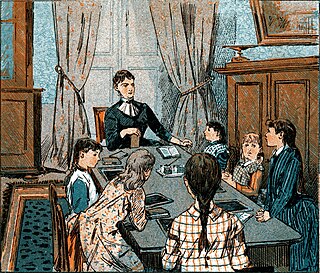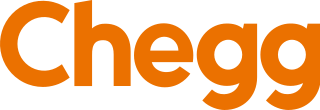
Homeschooling or home schooling, also known as home education or elective home education (EHE), is the education of school-aged children at home or a variety of places other than a school. Usually conducted by a parent, tutor, or online teacher, many homeschool families use less formal, more personalized and individualized methods of learning that are not always found in schools. The actual practice of homeschooling varies considerably. The spectrum ranges from highly structured forms based on traditional school lessons to more open, free forms such as unschooling, which is a lesson- and curriculum-free implementation of homeschooling. Some families who initially attended a school go through a deschool phase to break away from school habits and prepare for homeschooling. While "homeschooling" is the term commonly used in North America, "home education" is primarily used in Europe and many Commonwealth countries. Homeschooling should not be confused with distance education, which generally refers to the arrangement where the student is educated by and conforms to the requirements of an online school, rather than being educated independently and unrestrictedly by their parents or by themselves.

Homework is a set of tasks assigned to students by their teachers to be completed at home. Common homework assignments may include required reading, a writing or typing project, mathematical exercises to be completed, information to be reviewed before a test, or other skills to be practiced.
Minimally invasive education (MIE) is a form of learning in which children operate in unsupervised environments. The methodology arose from an experiment done by Sugata Mitra while at NIIT in 1999, often called The Hole in the Wall, which has since gone on to become a significant project with the formation of Hole in the Wall Education Limited (HiWEL), a cooperative effort between NIIT and the International Finance Corporation, employed in some 300 'learning stations', covering some 300,000 children in India and several African countries.
BrainPop is a group of educational websites based in New York City. It hosts over 1,000 short animated movies for students in grades K–8, together with quizzes and related materials, covering the subjects of science, social studies, English, math, engineering and technology, health, arts and music. In 2022, Kirkbi A/S, the private investment and holding company that owns a controlling stake in Lego, acquired BrainPop.
An edublog is a blog created for educational purposes. Edublogs archive and support student and teacher learning by facilitating reflection, questioning by self and others, collaboration and by providing contexts for engaging in higher-order thinking. Edublogs proliferated when blogging architecture became more simplified and teachers perceived the instructional potential of blogs as an online resource. The use of blogs has become popular in education institutions including public schools and colleges. Blogs can be useful tools for sharing information and tips among co-workers, providing information for students, or keeping in contact with parents. Common examples include blogs written by or for teachers, blogs maintained for the purpose of classroom instruction, or blogs written about educational policy. Educators who blog are sometimes called edubloggers.
Investigations in Numbers, Data, and Space is a K–5 mathematics curriculum, developed at TERC in Cambridge, Massachusetts, United States. The curriculum is often referred to as Investigations or simply TERC. Patterned after the NCTM standards for mathematics, it is among the most widely used of the new reform mathematics curricula. As opposed to referring to textbooks and having teachers impose methods for solving arithmetic problems, the TERC program uses a constructivist approach that encourages students to develop their own understanding of mathematics. The curriculum underwent a major revision in 2005–2007.
Flocabulary is a Brooklyn-based company that creates educational hip hop songs, videos and additional materials for students in grades K-12. Founded in 2004 by Blake Harrison and Alex Rappaport, the company takes a nontraditional approach to teaching vocabulary, United States history, math, science and other subjects by integrating content into recorded raps. Flocabulary's website features videos, lesson plans, activities and assessment or with songs. The company's name is a portmanteau of "flow" and "vocabulary".
GodTube is an online video platform which provides Christian video content. It is owned by Salem Web Network, the internet division of Salem Communications. GodTube includes music videos, comedy, children, animals, sports, news and inspirational clips.

Quantcast is an American technology company, founded in 2006, that specializes in AI-driven real-time advertising, audience insights and measurement. It has offices in the United States, Canada, Australia, Singapore, United Kingdom, Ireland, France, Germany, Italy, and Sweden.

Yahoo! Kids is a public web portal provided by Yahoo! Japan to find age-appropriate online content for children between the ages of 4 and 12. This site was formerly available in English via Yahoo!, where it was known as Yahooligans! until December 2006, and in Korean via Yahoo! Korea.

Chegg, Inc., is an American education technology company based in Santa Clara, California. It provides homework help, digital and physical textbook rentals, textbooks, online tutoring, and other student services.
Course Hero is an American education technology website company based in Redwood City, California which operates an online learning platform for students to access course-specific study resources and online tutors.
Notehall is an online marketplace, in which college students can buy and sell class notes. Notehall gained recognition after appearing on the ABC reality show Shark Tank in October 2009. It has since been purchased by Chegg, a textbook-rental company, for $3.7M in equity and undisclosed cash. Notehall.com was later integrated into the Chegg Homework Help site.
LearnHub was a social learning network for international education run by Savvica Inc., an online learning company based in Toronto, Ontario, Canada. The website was launched in 2008 to help Indian students find higher education opportunities primarily in the US, the UK and Canada. The website was shut down in 2013 following closure of the company's Toronto headquarters. The site offered test preparation tools, a university program directory, student counselling and a career network. In May 2010, LearnHub became the 30th most visited website in India. In June 2011 Learnhub was 13th most visited site in India and the most popular education website in India. This success was highly cyclical and was a result of the traffic spikes in May/June when Indian students were using the vast free test prep database housed on the site. As of December 2012, LearnHub closed its Toronto office and stopped updating its website, Twitter and Facebook pages, suggesting that the company was no longer operating. In April 2013, Top Hat Monocle announced that LearnHub co-founder and former CEO Malgosia Green became the company's new Chief Product Officer.
The gradual release of responsibility (GRR) model is a structured method of pedagogy centred on devolving responsibility within the learning process from the teacher to the learner. This approach requires the teacher to initially take on all the responsibility for a task, transitioning in stages to the students assuming full independence in carrying it out. The goal is to cultivate confident learners and thinkers who are capable of handling tasks even in areas where they have not yet gained expertise.

A flipped classroom is an instructional strategy and a type of blended learning. It aims to increase student engagement and learning by having pupils complete readings at home, and work on live problem-solving during class time. This pedagogical style moves activities, including those that may have traditionally been considered homework, into the classroom. With a flipped classroom, students watch online lectures, collaborate in online discussions, or carry out research at home, while actively engaging concepts in the classroom with a mentor's guidance.
MyMaths is a subscription-based mathematics website which can be used on interactive whiteboards or by students and teachers at home. It is owned and operated by Oxford University Press, who acquired the site in 2011. As of February 2021, MyMaths has over 4 million student users in over 70 countries worldwide.

Brainly is an education company based in Kraków, Poland, with headquarters in New York City. It is an AI-powered homework help platform targeting students and parents. As of November 2020, Brainly reported having 15 million daily active users, making it the world's most popular education app. In 2024, FlexOS reported Brainly as the #1 Generative AI Tool in the education category and the #6 Generative AI Tool overall. Also in 2024, Andreessen Horowitz reported Brainly as #6 in the Top 50 Gen AI Mobile Apps by monthly active users.
HegartyMaths was an educational subscription tool used by schools in the United Kingdom. It was sometimes used as a replacement for general mathematics homework tasks. Its creator, Colin Hegarty, was the UK Teacher of the Year in 2015 and shortlisted for the Varkey Foundation's Global Teacher Prize in 2016.
Google Expeditions was a virtual reality (VR) platform developed by Google and designed for educational institutions. Using Android or iOS smartphones, the companion mobile app and head-mounted displays such as Google Cardboard or Daydream View, students could take virtual trips to various destinations. Well-known partners included the American Museum of Natural History, National Geographic, WWF and the National Museum of Korea. The platform was discontinued on June 30, 2021, and was merged into Google Arts & Culture.







